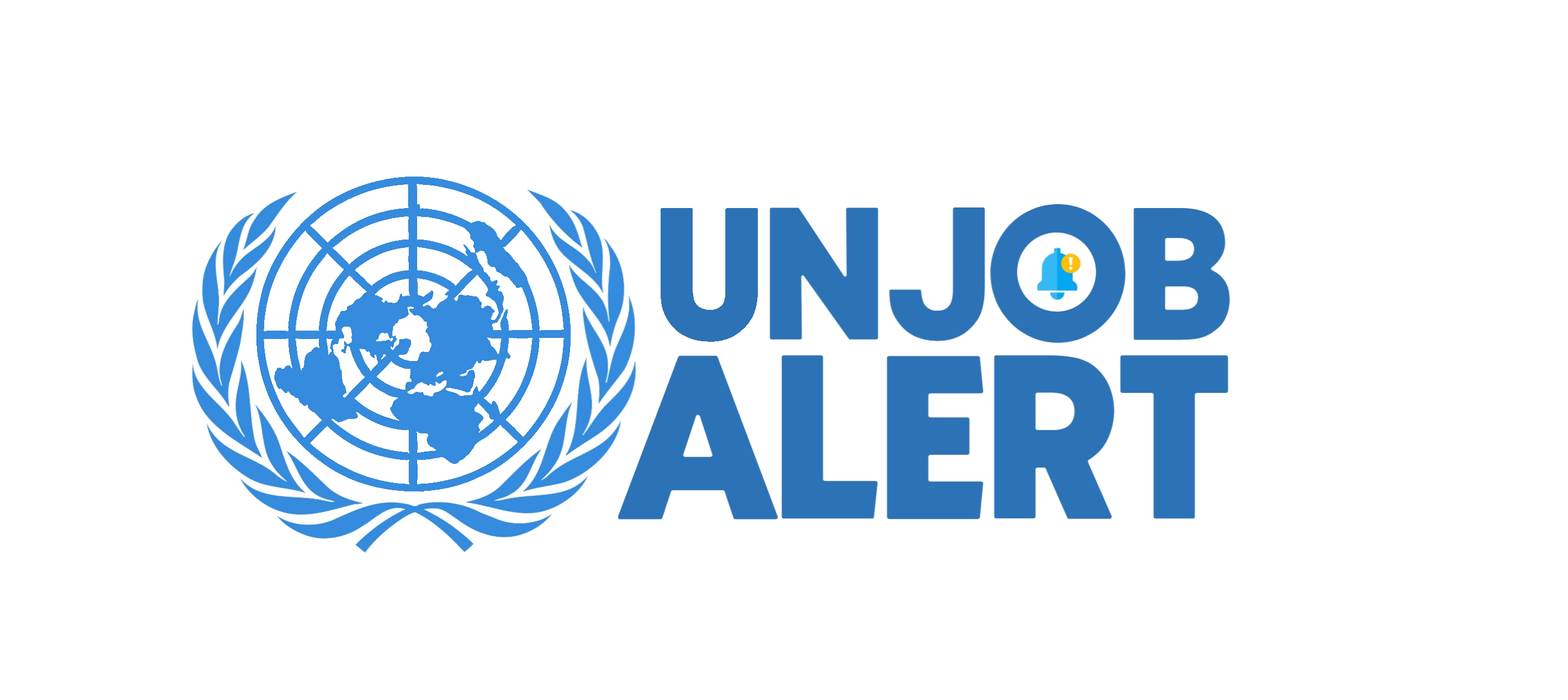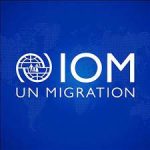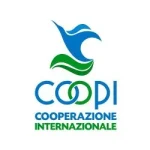Description
Location: Tegucigalpa, Honduras; Guatemala City, Guatemala, or alternate location in Central America
Reports to: Regional Program Director (RPD)
Please Note: This position is contingent upon award and CDC approval with an anticipated start date of June 2025.
Global Communities works at the intersection of humanitarian assistance, sustainable development and financial inclusion to save lives, advance equity and secure strong futures. We support communities at the forefront of their own development in more than 35 countries, partnering with local leaders, governments, civil society and the private sector to achieve a shared vision of a more just, prosperous and equitable global community. We work with government, non-government, private sector and community stakeholders to promote transparency, foster accountability and access the channels they need to make their voices heard, promote change and realize their full potential.
Global Communities is seeking a Regional Prevention and Testing Lead (RPTL) for the anticipated CDC PEPFAR HIV Prevention, Care and Treatment Program in Central America. This five-year, $85M program will enhance the capacity of El Salvador, Guatemala, Honduras, Nicaragua and Panama to address gaps in HIV prevention, diagnosis and treatment and accelerate progress towards achieving the 10-10-10 prevention objectives and 95-95 -95 care targets. The program is expected to provide technical assistance to ministries of health (MoH) and other relevant stakeholders to prevent new infections; increase knowledge of HIV status and early diagnosis; improve treatment outcomes among people living with HIV (PLHIV) and enhance skills of healthcare workers involved in HIV prevention, testing and treatment services.
The RPTL will design and oversee the implementation of strategic HIV prevention and testing activities, strengthening community care capacities and limiting new transmissions through education, testing and outreach services. We are looking for passionate, dedicated professionals to help us build the world we envision: one of expanded opportunity, where crises give way to resilience and all people thrive.
Responsibilities
Working under the overall direction of the RPD, the RPTL will oversee the design, implementation and day-to-day management of comprehensive HIV prevention interventions to target key and priority populations with the objectives of: increased HIV case finding and reduced late HIV diagnosis among key populations and partners of index cases, sustained negative HIV test results among individuals on PreP and improved public health response to clusters of active HIV transmission. The high-level RPTL responsibilities include, but are not limited to:
- Lead technical approaches for scale up of comprehensive HIV testing and prevention services to ensure increased access to HIV testing and yield among key populations and index case partners, improved public health response to active transmission clusters, and consistently high (>95%) linkage to treatment . Approaches will leverage the HIV and Sexually Transmitted Infection Sentinel Surveillance and Control of STIs Strategy (VICITS/CLAM).
- Lead the development and implementation of bespoke testing and prevention methods, including but not limited to index testing, differentiated service modalities at key population testing facilities, pre-exposure prophylaxis (PreP) provision, rapid recency testing and response to clusters of recent transmission. Activities will also include diagnosis and treatment of STIs, distribution of condoms and lubricants and implementation of a surveillance information system.
- Ensure that programming links at risk but HIV-negative populations to prevention services.
- Increase knowledge of HIV status and early diagnosis by improving access to HIV testing through case-finding strategies, including testing as part of outreach for key populations, provider-initiated testing, community testing, social network strategy and self-testing.
- Foster an enabling environment for provision of services to mitigate the risk of human rights issues, stigma, discrimination and sexual and gender-based violence.
- As required, coordinate with the CDC to fulfill their customized program of assistance to each country, including: primary prevention of HIV infection through expanded confidential counseling and testing programs linked with behavioral change; strengthening the capacity of countries to collect and use surveillance data and manage national HIV/AIDS programs and strengthening laboratory support and developing and/or evaluating public health programs to inform, improve and target appropriate interventions related to the prevention of HIV/AIDS, TB and opportunistic infections.
- Strengthen and leverage multilateral organizations, global health partnerships and private sector partners and encourage country ownership to ensure program outcome sustainability.
- Ensure integration of biomedical HIV prevention services such as anti-retroviral therapy (ART) and PrEP into routine health services.
- Develop sustainable activities by working with community-based organizations on prevention-related program design, planning and management, implementation, coordination, communication and reporting.
- Foster an enabling environment by supporting program efforts to integrate testing and prevention protocols into national guidelines and systems, supporting, as required, MoHs and other above-site stakeholders to achieve this goal.
- Improve surveillance and monitoring programs, through available information systems, to support new infection mitigation.
- Support efforts to prevent, detect, respond and treat infectious and non-infectious diseases that impact HIV and populations affected by HIV.
- Oversee training, mentorship, and support of front-line providers to ensure delivery of high quality, patient-centered HIV prevention services based on the most current guidelines.
- Work with the monitoring, evaluation and learning (MEL) team to ensure activities achieve intended results. Refine activities in response to MEL data to ensure activities are effective and efficient uses of program resources.
- Facilitate seamless management and implementation of comprehensive HIV prevention services across all prevention partners and guide development of work plans, MEL Plans, and quality assurance plans.
- Coordinate with other implementing partners, CDC, MoH, civil society organizations, municipal governments and other national and international stakeholders.
- Support and supervise the HIV prevention team, clarifying, communicating and monitoring their performance standards and expectations.
Qualifications
- Master’s degree or higher (or significant practical experience) in Public Health, Social and/or Behavioral Sciences or a related field, with specific emphasis on community-level health promotion and/or education.
- Minimum of eight (8) years of professional experience, with five (5) years of experience in designing and implementing large-scale, US government funded HIV prevention and support programs for key and priority populations in a similar context.
- Demonstrated knowledge of evidence-based and combination HIV prevention care and support interventions for key and/or priority populations and linkage to services and approaches to addressing gender issues relating to HIV prevention.
- Prior experience in building capacity for staff, partners, healthcare providers and relevant stakeholders in improving health.
- Substantial experience in Central America is required.
- Demonstrated experience working with community-based organizations targeting key populations and PLHIV is required.
- Proven experience in a leadership position involving the administration of similarly sized, international donor-supported programs is strongly preferred.
- Knowledge/experience with CDC rules and regulations and experience managing CDC contracts is preferred.
- Evidence of effective communication skills, both oral and written; strong interpersonal and analytical skills.
- Languages: Full Professional Proficiency in spoken and written Spanish is required. Professional proficiency English is preferred.
- A passion for the mission and values of Global Communities is required.
Regional HIV Prevention and Testing Officer (RPP)
HIV Prevention, Care and Treatment Program (Central America)
Location: Tegucigalpa, Honduras; Guatemala City, Guatemala; or alternative location in Central America
Reports to: Regional Program Director (DRP)
Note: This position is contingent upon CDC award and approval with an anticipated start date of June 2025.
Overview:
Global Communities works at the intersection of humanitarian aid, sustainable development and financial inclusion to save lives, promote equity and ensure a strong future. We support communities at the forefront of their own development in over 35 countries, partnering with local leaders, governments, civil society and the private sector to achieve a shared vision of a more just, prosperous and equitable global community. We work with government, non-government, private sector and community stakeholders to promote transparency, foster accountability and access the channels they need to make their voices heard, promote change and realize their full potential.
Global Communities is seeking a Regional Prevention and Testing Officer (RPO) for CDC’s anticipated PEPFAR HIV Prevention, Care, and Treatment Program in Central America. This five-year, $85 million program will enhance the capacity of El Salvador, Guatemala, Honduras, Nicaragua, and Panama to address gaps in HIV prevention, diagnosis, and treatment and accelerate progress toward achieving the 10-10-10 prevention and 95-95-95 care goals. The program is expected to provide technical assistance to ministries of health and other stakeholders to prevent new infections, increase knowledge about HIV status and early diagnosis, improve treatment outcomes among people living with HIV, and improve the skills of health care personnel involved in HIV prevention, testing, and treatment services.
The PR will design and oversee the implementation of strategic HIV prevention and testing activities, strengthening community care capacities and limiting new transmissions through education, testing and outreach services. We are looking for passionate and dedicated professionals to help us build the world we envision: a world of greater opportunity, where crises give way to resilience and all people thrive.
Responsibilities:
Working under the overall direction of the DRP, the RPPP will oversee the design, implementation and day-to-day management of comprehensive HIV prevention interventions targeting key and priority populations with the goals of: increasing HIV case detection and reducing late HIV diagnosis among key populations and partners of index cases, sustaining HIV-negative test results among people on PrEP, and improving the public health response to clusters actively transmitting HIV. High-level responsibilities of the RPPP include, but are not limited to:
- Lead technical approaches to scale up comprehensive HIV testing and prevention services to ensure increased access to and throughput of HIV testing among key populations and partners of index cases, improved public health response to actively transmitting clusters, and consistently high linkage to treatment (>95%). Approaches will leverage the HIV and Sexually Transmitted Infections Sentinel Surveillance and STI Control (VICITS/CLAM) strategy.
- Lead the development and implementation of tailored testing and prevention methods, including but not limited to index testing, differentiated service modalities at testing sites for key populations, provision of pre-exposure prophylaxis (PrEP), rapid recency testing, and response to clusters of recent transmission. Activities will also include diagnosis and treatment of STIs, distribution of condoms and lubricants, and implementation of a surveillance information system.
- Ensure that programmes connect at-risk but HIV-negative populations with prevention services.
- Increase knowledge of HIV status and early diagnosis by improving access to HIV testing through case-finding strategies, including testing as part of outreach to key populations, provider-initiated testing, community-based testing, social media strategy, and self-testing.
- Foster an enabling environment for service delivery that mitigates the risk of human rights issues, stigmatization, discrimination and sexual and gender-based violence.
- As needed, coordinate with CDC to implement its tailored program of assistance to each country, including: primary prevention of HIV infection through expansion of confidential counseling and testing programs linked to behavior change; strengthening country capacity to collect and use surveillance data and manage national HIV/AIDS programs; and strengthening support for laboratories and the development and/or evaluation of public health programs to inform, improve, and guide appropriate interventions related to the prevention of HIV/AIDS, tuberculosis, and opportunistic infections.
- Strengthen and leverage multilateral organizations, global health partnerships and private sector partners, and foster country ownership to ensure sustainability of programme results.
- Ensure the integration of biomedical HIV prevention services, such as antiretroviral therapy and pre-exposure prophylaxis, into routine health services.
- Develop sustainable activities by collaborating with community organizations in the design, planning and management of programs related to prevention, implementation, coordination, communication and reporting.
- Foster an enabling environment by supporting the programme’s efforts to integrate evidence and prevention protocols into national guidelines and systems, supporting, as needed, MOHs and other top-level stakeholders to achieve this goal.
- Improve surveillance and monitoring programmes, through available information systems, to support the mitigation of new infections.
- Support efforts to prevent, detect, respond to and treat infectious and non-infectious diseases affecting HIV and populations affected by HIV.
- Oversee training, mentoring, and support to frontline providers to ensure delivery of high-quality, patient-centered HIV prevention services based on the most current guidelines.
- Work with the Monitoring, Evaluation and Learning (MEL) team to ensure that activities achieve the intended results. Refine activities in response to MEL data to ensure that activities are effective and that efficient use is made of programme resources.
- Facilitate the ongoing management and implementation of comprehensive HIV prevention services among all prevention partners and guide the development of work plans, MEL plans and quality assurance plans.
- Coordinate with other implementing partners, CDC, Ministry of Health, civil society organizations, municipal governments and other national and international stakeholders.
- Support and supervise the HIV prevention team by clarifying, communicating and monitoring their performance standards and expectations.
Qualifications:
- Master’s degree or higher (or significant practical experience) in Public Health, Social and/or Behavioral Sciences, or a related field, with specific emphasis on community-based health promotion and/or education.
- A minimum of eight (8) years of professional experience, with five (5) years of experience in the design and implementation of large-scale, U.S. government-funded HIV prevention and support programs for key and priority populations in a similar context.
- Demonstrated knowledge of evidence-based and combination HIV prevention care and support interventions for key and/or priority populations and linkage to services and approaches to address gender issues related to HIV prevention.
- Previous experience in training staff, partners, healthcare professionals and stakeholders in health improvement.
- Extensive experience in Central America is required.
- Demonstrated experience working with community-based organizations targeting key populations and PLHIV is required.
- Demonstrated experience in a leadership position related to the administration of programs of similar size funded by international donors will be highly valued.
- Knowledge/experience with CDC rules and regulations and experience managing CDC contracts is preferred.
- Demonstrate effective communication skills, both oral and written; strong interpersonal and analytical skills.
- Languages: Full professional proficiency in written and spoken Spanish is required. Professional proficiency in English is preferred.
- Passion for the mission and values of Global Communities is required.
Global Communities positively welcomes and seeks applications from all sections of society. We are committed to a work environment that respects the dignity and worth of everyone and offers equal opportunity. All qualified applicants will receive consideration for employment.
Global Communities holds strict safeguarding principles and has a zero-tolerance policy for conduct of sexual exploitation, abuse, and harassment. In the process of recruitment, selection, and appointment, Global Communities will conduct robust reference and background screening checks, including international vetting as a signature of the Global Misconduct Disclosure Scheme to ensure children and vulnerable adults are safeguarded, and abuse is prevented. The incumbent is required to carry out their duties in accordance with Global Communities Safeguarding policy and the Standards of Conduct.



